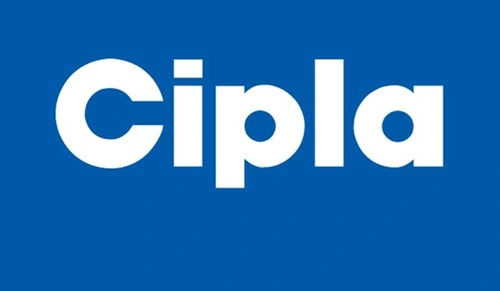Cipla Limited, founded in 1935, is a leading global pharmaceutical company headquartered in Mumbai, India. The company specializes in producing generic drugs, over-the-counter (OTC) products, active pharmaceutical ingredients (APIs), and innovative healthcare solutions. Cipla has been known for its strong commitment to affordable and accessible healthcare, particularly in the areas of respiratory disease, HIV/AIDS, oncology, and cardiovascular treatments. In 2024, Cipla remains a dominant player in the Indian pharmaceutical industry and is expanding its presence in global markets. A SWOT analysis sheds light on the company’s strengths, weaknesses, opportunities, and threats, offering insights into its current and future positioning.

Current Overview of Cipla
Cipla operates in over 80 countries and has a strong presence in both emerging and developed markets. With more than 2,000 products across various therapeutic categories, the company is well-regarded for its cost-effective manufacturing capabilities and a commitment to research and development (R&D). Cipla’s global footprint, coupled with its leadership in providing essential medications for conditions like HIV and respiratory diseases, has enabled the company to grow consistently in the competitive pharmaceutical market. However, like many large pharmaceutical companies, Cipla faces regulatory challenges, intense competition, and pricing pressures.
Strengths
1. Strong Brand Reputation: Cipla has built a robust global brand known for its ethical standards and commitment to providing affordable medications. Its focus on quality healthcare solutions has garnered strong customer loyalty and trust.
2. Global Reach and Market Leadership: Cipla operates in more than 80 countries, offering a wide range of products across both developed and emerging markets. It holds a leadership position in therapeutic areas such as respiratory care and anti-infective treatments, especially with its well-regarded inhaler products.
3. Research and Development Focus: Cipla invests heavily in R&D to develop innovative healthcare solutions. Its focus on biosimilars and biologics, alongside its strong generic drug portfolio, ensures that it stays competitive in the market.
4. Cost-Efficient Manufacturing: The company’s ability to manufacture high-quality medications at a lower cost, particularly in emerging markets like India and Africa, has strengthened its position in the global pharmaceutical landscape.
5. Strategic Acquisitions: Cipla has made strategic acquisitions, including investments in companies like InvaGen in the U.S. and partnerships in South Africa, enhancing its presence in critical global markets.
Weaknesses
1. Dependence on Emerging Markets: Despite its global presence, Cipla relies heavily on India and other emerging markets for a significant portion of its revenue. This over-reliance could make the company vulnerable to economic or regulatory changes in these regions.
2. Limited Penetration in Developed Markets: Although Cipla has a presence in developed regions such as the U.S. and Europe, it lacks significant market share in comparison to its competitors. This limits the company’s growth potential in high-margin markets.
3. Regulatory Challenges: Operating in diverse regulatory environments exposes Cipla to compliance issues and delays in product launches. The pharmaceutical sector’s stringent rules can create hurdles in expanding into new markets or launching innovative products.
4. Patent Expirations: As with many pharmaceutical companies, Cipla faces the challenge of patent expirations, which open the door for generic competition and potentially reduce its market share for certain key drugs.
Opportunities
1. Expansion in Emerging Markets: Cipla has opportunities to further penetrate emerging markets like Asia, Africa, and Latin America, where the demand for affordable healthcare solutions is rising rapidly due to improvements in medical infrastructure.
2. Biotechnology and Biosimilars: With the growing importance of biologics and biosimilars in modern medicine, Cipla can expand its product offerings in this area, driving growth in both developed and emerging markets.
3. Digital Health Solutions: The rise of telemedicine, digital therapeutics, and remote patient monitoring presents Cipla with opportunities to diversify into digital health platforms. This can enhance patient outcomes and create new revenue streams.
4. Increased Investment in R&D: By continuing to invest in R&D for new therapies, especially in high-growth areas like oncology and neurology, Cipla can stay competitive and expand its product portfolio.
Threats
1. Intense Competition: Cipla operates in a highly competitive pharmaceutical market with major players like Sun Pharma, Dr. Reddy’s Laboratories, and multinational corporations. This competition limits its market share and growth potential.
2. Pricing Pressures and Government Regulation: Governments and insurers globally are applying increasing pressure to lower drug prices, which can affect Cipla’s profitability, especially in generic drugs where margins are already thin.
3. Patent Litigation: Cipla is exposed to risks related to intellectual property disputes, particularly in markets like the U.S. and Europe. Ongoing patent challenges and lawsuits could impact its financial stability and market reputation.
4. Fluctuating Currency Exchange Rates: As a global company, Cipla is affected by fluctuations in currency exchange rates, which can impact its earnings from international markets.
Future Plans
Cipla’s future strategy includes increasing its presence in high-growth therapeutic areas such as oncology, respiratory care, and diabetes. The company also aims to strengthen its biosimilar and biologic portfolio, with a focus on expanding its reach in developed markets like the U.S. and Europe. Furthermore, Cipla is keen on exploring opportunities in digital healthcare, including telemedicine and patient monitoring, to enhance its product offerings and service capabilities.
Conclusion
Cipla is well-positioned as a global pharmaceutical leader with a strong brand, extensive product portfolio, and a solid commitment to affordable healthcare. However, it faces challenges such as market dependency, regulatory hurdles, and intense competition. By expanding into emerging markets, increasing its R&D focus, and leveraging opportunities in biotechnology and digital health, Cipla can continue to grow and maintain its leadership position in the pharmaceutical industry. The company’s ability to navigate pricing pressures and patent expirations will be key to its long-term success